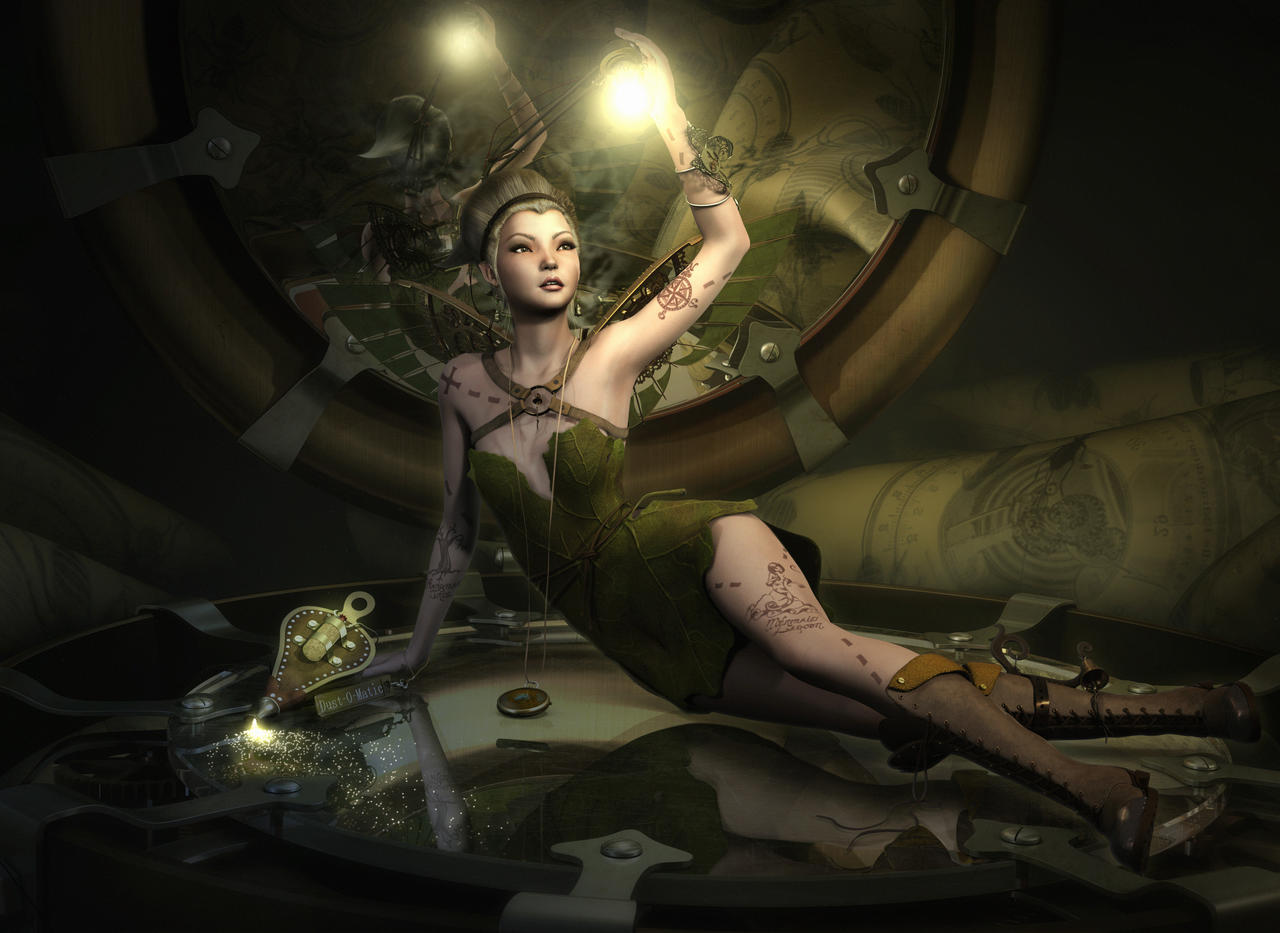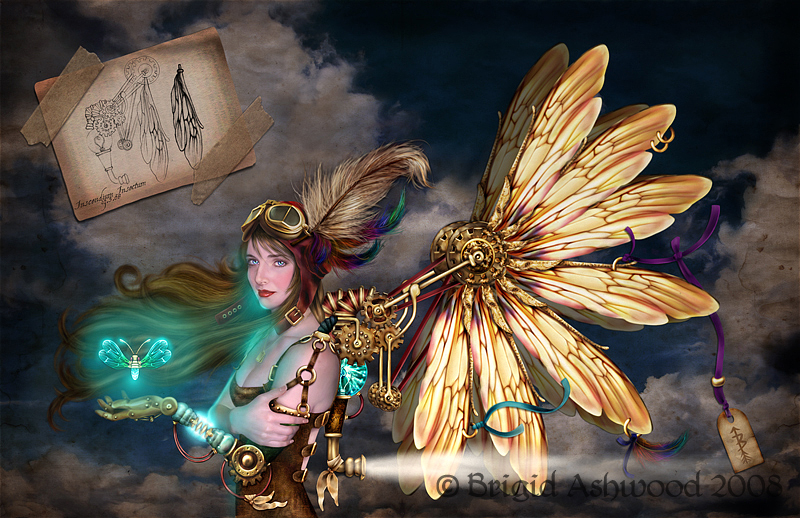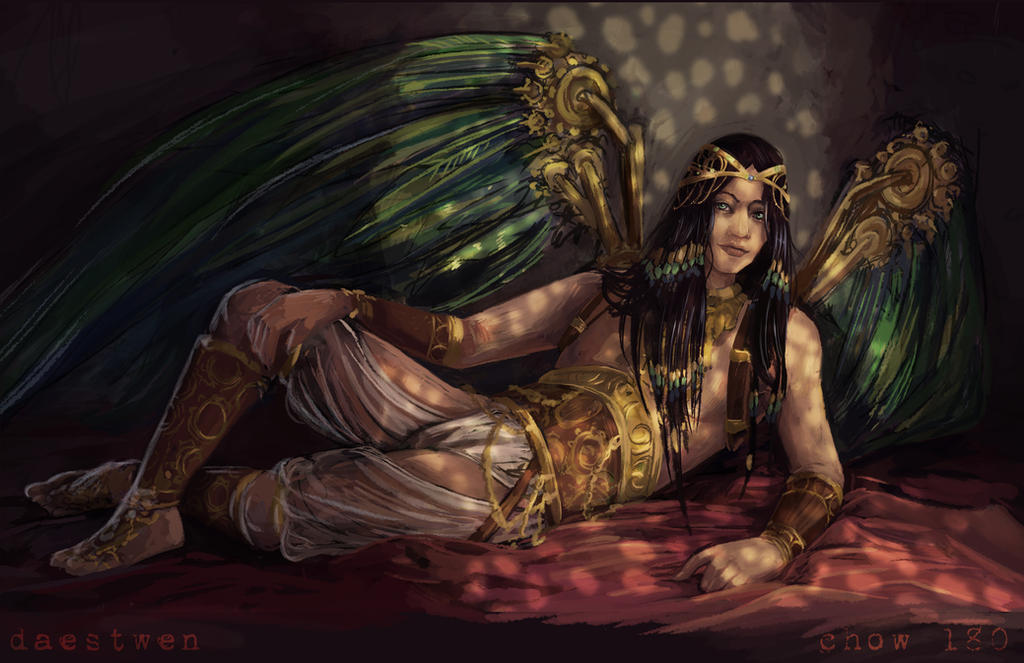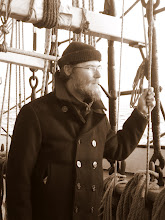This is a copy of my post to the Calgary Steampunk Assemblage discussion board back in May of 2012.
An interesting project that I am still going to pursue.
Watch for posts labelled Absinthium.
KJ
=============================
Following on from the wonderful thread about the
hand cranked wine bottle opener and pourer, this thread is for
discussion of what would be needed to do the same thing for preparing a
"dose" of Absinthe.
The process of preparing Absinthe properly is described here:![]() The Absinthe Ritual.
The Absinthe Ritual.
As you can see there is much more to this process than simply pouring a shot into a glass  .
Of course it is that very process which, in it's ritualistic form,
enhances the experience. So rather than simply having this machine "whip
up a glass", it needs to be a soothing and mellow process so as not to
disrupt the ambiance.
.
Of course it is that very process which, in it's ritualistic form,
enhances the experience. So rather than simply having this machine "whip
up a glass", it needs to be a soothing and mellow process so as not to
disrupt the ambiance.
Ideas and suggestions welcome!
Keep your sightglass full, your firebox trimmed and YOUR WATER ICED!
KJ
Some resources:
![]() ROYMECH Linkages
ROYMECH Linkages
![]() ROYMECH Mechanisms
ROYMECH Mechanisms
![]() Web-Based Mechanism Design and Analysis
Web-Based Mechanism Design and Analysis
![]() Four-Bar Linkage Analysis and Synthesis
Four-Bar Linkage Analysis and Synthesis
![]() Virtual Mechanisms Animated by Java
Virtual Mechanisms Animated by Java
![]() Gear Design (PDF)
Gear Design (PDF)
Mechanisms and there applications
Edited by Kevin Jepson on May 15, 2012 11:04 AM
The Absinthium, a project
Steam as an Airship Lifting Gas
Now this is interesting!
This site deals with the pros and cons of using steam as the lifting gas for lighter than air vehicles.
The Flying Kettle: Steam Balloons and Steam Airships
There have not been any recent updates since 2003 but it is a fun site to explore the idea of simply using steam as the lifting gas.
This page here is a general discussion of the details of using steam for generating lift.
STEAM BALLOONS AND STEAM AIRSHIPS
I can already feel the ideas beginning to bubble :-)
"Soon shall thy arm, unconquer'd steam! afar
Drag the slow barge or drive the rapid car;
Or on wide waving wings expanded bear
The flying chariot through the fields of air.
Fair crews triumphant, leaning from above,
Shall wave their fluttering kerchiefs as they move;
Or warrior bands alarm the gaping crowd,
And armies shrink beneath the shadowy cloud."
--Dr. Erasmus Darwin,1731-1802
Keep your sightglass full, your firebox trimmed and your water iced.
KJ
Steampunk Pinup!
Girl Genius by Phil and Kaja Foglio
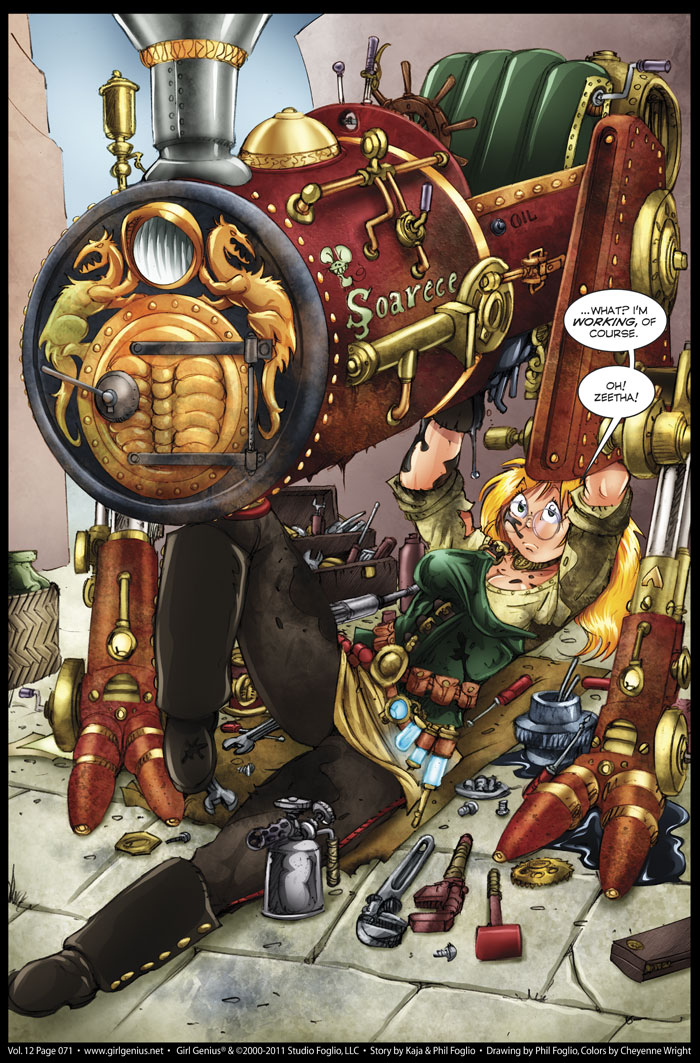
The adventures start here: Girl Genius
Keep your sightglass full, your firebox trimmed and your water iced.
KJ
Steampunk Movie
A Steampunk Movie...
KJ
Seven wild, whacky and insane guns
Very nice article from cracked.com, seven interesting and weird firearms.
Could make for some great Steampunk models I think.
Keep your sightglass full, your firebox trimmed and your water iced.
KJ
========================
7 Awesomely Insane Guns People Actually Used

#7. The Duck's Foot Pistol
The duck's foot pistol, so named because its four splayed barrels were shaped like the foot of a duck (back in the 18th century, when ducks were gargantuan, terrifying steampunk monstrosities with pistols for toes), was designed to take on large groups at close range. It was most popular with officers on sailing ships, who often carried a pair of them to, uh, "discourage" potential mutineers in the cramped quarters.The immediately apparent problem here -- that the rational person would've spotted instantly, but the completely insane gun maniac clearly missed because he was too busy firing indiscriminately into crowds -- is that you can never hit what you're actually aiming at with a standard duck's foot pistol. You can only hit everything else around it, because none of the four barrels point straight ahead. But that just means you have to remember to think a little differently when handling one: Instead of aiming at the thing you want to kill, you just aim at the one thing you like and kill the rest of the world around it.
#6. Key Guns
First used in the 16th century, key guns allowed a jailer to keep his weapon throughout the entire extremely vulnerable process of opening a cell door, thus never leaving him unprotected. Well, all except for the times when he's actually using the key/barrel end of the pistol to disengage the lock. That's right, key guns weren't just shaped like keys to throw people off or disguise their nature as pistols -- they're both functional keys and functional pistols (presumably so that if some uppity lock ever has the balls to stick on your watch, you can just shoot it off like a Renaissance Bruce Willis).Continued at the link...
Tinkerer's Rules
Rules to live by!
More Wondermark goodness.
I have a signed copy of this that I bought from Mr Malaki! at Calgary Comic Expo this year. It is just waiting to be framed and hung up in a place of honour.
Keep your sightglass full and your firebox trimmed.
KJ

The other Sherlock Holmes Movie
Found this in my rambles the other day.
Looks interesting but haven't seen it yet.
The trailer is very cool.
Keep your sightglass full, your firebox trimmed and your water iced.
KJ
======================
Undead Backbrain
DVD: THE ASYLUM'S CASH-IN SHERLOCK HOLMES MOVIE at Sherlock Holmes News
New Holidays from Wondermark
This is an interesting calendar from David Maliki! at Wondermark
Not specifically Steampunk but useful for those who just can't get enough things to celebrate.
Enjoy
Keep your sightglass full and your firebox trimmed.
KJ
===============
Courtesy of Wondermark

Here
are (some of) the ones that will be included on the 2012 Wondermark
Calendar (the cover to which is pictured above). I shifted a few dates
around to ensure an even distribution, and added a handful of my own.
Please get ready to observe:
January 11: St. Whinge’s Day
This
is a day for letting off steam over all your bad luck in the past year,
and the unfairness of the universe in general. On this day, children
may carry a hat or cap in their hand, and anyone may toss a coin into
it. Anyone who does is entitled to tell the child about an instance from
the past year where the malevolent forces of the world clearly
conspired against any sensible probability. The child is expected to
listen attentively and reply with the ritual words: “Well, that’s just
incredibly bad luck, that is!” (Submitted by Immanio)
January 28: Y’haug’f’than
A
day predicted by the astrologies of long burnt out stars in which
Esh’am’borath the Goat Mother of Ten Thousand Young will ascend from the
murky, cyclopean gates of the Neverliving and rend the sanity from our
still screaming husks. Typically celebrated by the exchange of trite
greeting cards, or by that one annoying woman at work that bakes
cupcakes at any excuse. (Submitted by Howard P. L.)
January 22: The Black Feast of St. Argyle’s
The
day you reschedule your winter holiday to, either because you couldn’t
get time off in December to visit your folks or because you were stuck
with your in-laws on Christmas. It’s a second chance to get your
holidays right. (Submitted by dawnwich)
March 20: Bloodletting Day
A
springtime purification ritual, observed by many religions, in which
practitioners celebrate by dotting their bodies with leeches. Followed
by:
March 21: Lethargy Day
(Submitted by Beth)
March 31: National Beard Appreciation Day
Celebrated
on the last Saturday in March by proudly wearing one’s beard in public
spaces. Those without beards are expected to provide food and
refreshment to their bearded betters, or may wear false beards (and
receive false food in return). Standing ovations for particularly
spectacular specimens are considered a polite show of support. Shaving
on National Beard Appreciation Day is considered very gauche. (Submitted
by Eddie)
April 14: Robots’ Michaelmas
Earmarked since
Babbage built the earliest thinking machines, waiting for when the bots
gain sentience. It will be the one day of the year when robots may
disobey their masters and wreak whatever havoc they please, but only on
the understanding that April 15 (Robots’ Sorrow) must be spent putting
everything back as it should be. (Submitted by Stewart)
May 9: Non-Denominational Regret Day
A
day for thinking back on the things that could have been, or should
have been. Celebrants write their regrets down, then fold their papers
and spear them on the branches of a tree. Children with few regrets
often write down what they hope they will regret in the coming year.
Everybody then takes home one other person’s regret, and the tree
spontaneously dies. (Submitted by Leif A.)
Carnal Machines
 Carnal Machines: Steampunk Erotica
Carnal Machines: Steampunk Erotica
by D.L. King
From:
So I Read This Book... A Blog on Speculative, Fantastika & Weird Books
Blurb:
The Victorians wrote some of the best and most enduring erotica. For
such a tightly-laced age, people spent a lot of time thinking about
things carnal. Jules Verne, Sir Arthur Conan Doyle, Mary Shelley, H.G.
Wells, et al enthralled us with their visions of new possibilities. The
rich and slightly decadent visuals of the steam age lend themselves
perfectly to the new carnality of post-punk era. And, of course, what is
repressed will be even more exciting once the corset is unlaced.
Steampunk, even without sex, is erotic; with sex, it’s over-the-top hot.
A widowed lady engineer invents a small device that can store the
energy from sexual frustration and convert it to electricity to help
power a home. Teresa Noelle Roberts shows us what it can do, confronted
with sexual fulfillment. What volume of steampunk would be complete
without a tale of sailing ships and the men who sail them? If your taste
runs to sexy pirates in space, Poe Von Page will delight you with the
mutinous crew of the Danika Blue and their new captain.
Then
there’s the very special room on the top floor in the House of the Sable
Locks, a brothel where sexually discriminating men go to have their
fantasies fulfilled. Even if a man daren’t put those fantasies into
words, Elizabeth Schechter’s “Succubus” will give the madam all the
information she needs with which to make her clients happy. There are
brothels, flying machines, steam-powered conveyances, manor houses,
spiritualist societies. The following stories afford intelligently
written, beautifully crafted glimpses into other worlds, where the
Carnal Machines won’t fail to seduce you, get you wet or make you hard
so, lie back, relax; a happy ending is guaranteed.
Published 4/12/11
Steampunk Emoticons and Abbreviations
From a long running thread at the Steampunk Forum Brass Goggles
Enjoy.
Keep your sightglass full, your firebox trimmed and your water iced.
KJ
-----
http://brassgoggles.c...![]()
February 26, 2007
If we as a culture wish to truly take off as a sub-culture, we'll need customized emoticons and acronyms.
For example;
A higher-class sophisticate might wish to don his monocle during a chat, like so: -_Q
Whereas BTW means By-The-Way, BTB would stand for By-The-By; which is far more appropriate for gentlemen and women than the former.
Feel free to add your thoughts and ideas!
-_Q
Monocle. (Sir Andrew)
BTW
By The Way. (Sir Andrew)
BTB
By The By. (Sir Andrew)
WC
Water Closet (traditional, mentioned by Rococoboy)
ByJ
By Jove! (initially Sir Andrew, corrected by Heavyporker)
STOP
sentence end (traditional, mentioned by TheClockworkWasteland)
END
post end (traditional, by Kabuki)
JOVE
By Jove alternative. (Daeudi_454)
WAA
We are amused. (RPFolkers)
HP
How peculiar. (RPFolkers)
IS
I Say! (BigGenNickYard)
QS
Quite so. (BigGenNickYard)
WP
Well played. (BigGenNickYard)
HH!
Here here! (BigGenNickYard)
TB
Talking b*llocks. (BigGenNickYard)
WWW
What what what? (BigGenNickYard)
GSOC
Good show, old chap. (MrFats)
The Oxford Exhibition in 2009-10
Keep your sightglass full, your firebox trimmed and your water iced.
KJ
Barth's Explorations and Travels 1849-1855
I
found this wonderful volume in the "Antique Mall" off Blackfoot last
year. It was in a used book section which is actually an old estate
collection being sold off. This book is a real treasure and in pretty
good shape for having been published over a 147 years ago!
The
book is the journal of the African expedition of 1849-1855 by Dr. John
Barth. This expedition is significant because it covered a large
amount of North and Central Africa under extremely trying conditions.
Barth was a professor at the University of Berlin and had extensively
traveled in North Africa, by himself! He was asked to join a British
expedition to North Central Africa under the command of a Mr Richardson.
During the course of the expedition Richardson died and Barth carried on himself eventually returning after almost six years!
This
is the period of Colonial exploration of the "Dark Continent", the time
of Dr. Livingston's explorations in South Central Africa. In fact one
of the most interesting things contained in this book is a fold out map
showing the areas of Africa explored at this time and most of Africa is
still a blank.
This book is quoted and referenced by Jules Verne
in "Five Weeks in a Balloon" and Barth's explorations and journeys in
North Central Africa were considered at the time to be every bit as
valuable as Livingston's in the South. As a glimpse into the trials and
wonder of these hardy European adventurer explorers of the 19th
century, Barth's journal is almost unequaled.
Originally
published in England in 5 Octavo volumes (for then exorbitant price of
30 dollars), this edition is a kind of "condensed" popular work for the
growing number of arm chair adventurers in England and America. It is
still long at 538 pages.
A very interesting glimpse into the world of pre-colonial Africa, through the eyes of a scholar/adventurer.
Added bonus is the advertisements for other books in the publisher's catalog. Some of which sound very entertaining indeed.
Title
Travels and Discoveries in North and Central Africa
From the Journal of an Expedition
Undertaken under the Auspices of H.B.M.'s Government
In the years 1849-1856
Author
Henry Barth, Ph. D., D.C.L.,
Fellow of the Royal Geographic and Asiatic Societies, Etc. Etc.
Publisher
J.W.Bradley
Philadelphia
Date
1859
Keep your sightglass full, your firebox trimmed and your water iced.
KJ
The Absinthe Ritual
Thought those of us who partook of that fine bottle of "Taboo" at The
Clockwork Heart event on the weekend might be interested in more details
of the Louche Ritual.
Keep your sightglass full, your firebox trimmed, and your water iced.
KJ
Originally posted to Meetup Feb 27, 2012
The Absinthe Ritual
How to properly serve an absinthe.
http://www.absinthecl...![]()
Unlike many everyday aperitifs, absinthe was historically almost always prepared and drunk
in a highly specific way - this, the so-called "absinthe ritual", was part of the reason for its popularity
and for the unique position it's always held in the pantheon of drinks.
Below are some guidelines on the proper preparation of a glass of absinthe.
The Absinthe Ritual
All
true absinthes are bitter to some degree (due to the presence of
absinthin, extracted from the wormwood) and are therefore usually served
with the addition of sugar. This not only counters the bitterness, but
in well made absinthes seems also to subtly improve the herbal
flavour-profile of the drink.
The classic French absinthe ritual
involves placing a sugar cube on a flat perforated spoon, which rests on
the rim of the glass containing a measure or “dose” of absinthe. Iced
water is then very slowly dripped on to the sugar cube, which gradually
dissolves and drips, along with the water, into the absinthe, causing
the green liquor to louche (“loosh”) into an opaque opalescent white as
the essential oils precipitate out of the alcoholic solution. Usually
three to four parts water are added to one part of 68% absinthe.
Historically, true absintheurs used to take great care in adding the
water, letting it fall drop by single drop onto the sugar cube, and then
watching each individual drip cut a milky swathe through the
peridot-green absinthe below. Seeing the drink gradually change colour
was part of its ritualistic attraction.
Notes on technique
The
“ritual” is important – it’s part of the fascination of absinthe. No
other drink is traditionally consumed with such a carefully calibrated
kind of ceremony. It’s part of what lends absinthe its drug-like allure
(for instance, one talks about the dose of absinthe in the glass, a term
you’d never use with whisky or brandy). From all historical evidence,
it seems that absinthe was almost always drunk like this – even the
poorest working man, in the roughest bar or café, would prepare his
absinthe slowly and carefully. It was seldom drunk neat (except by the
kind of desperate end-stage alcoholics who might also be drinking ether
or cologne); the water was always added slowly not just sloshed in; ice
was never added to the glass.
The water added to the absinthe dose must always be iced, as cold as possible. Part of the advantage of
using
an absinthe fountain was that you could add ice cubes to the water to
keep it cold, and some carafes had a chamber for ice as well. There’s a
famous poem by the French author and absintheur Raoul Ponchon, where he
says if you add tepid water, you might as well be drinking … pissat
d’âne / ou du bouillon pointu – donkey piss or an enema broth.
Paradoxically though, ice wasn't added to the glass itself – the idea
was to start with the drink as cool as possible, but let it slowly warm
to room temperature as you drank it. Aside from historical
considerations, it tastes better this way.
It’s essential to add
the water as slowly as possible – drop by drop - particular at first, as
the louche starts to develop. There are two reasons for this: it
enables you to admire the gradual change of color, and it allows the
aroma to develop slowly for maximum complexity and interest.
(Technically: different essential oils precipitate out of the solution -
and thus release their aromas - at different dilution percentages. By
pouring very slowly you effectively get to appreciate them all
individually, whereas if you just throw the water in everything gets
released at once).
Holding the carafe in a relaxed and stylish
way high above the glass, and letting the water slowly drip out drop for
drop is harder than you’d think, and was a much admired skill at the
time. Busy cafés had “absinthe professors” – professional absintheurs –
who for a small sum would instruct a patron in the art, or assist him
themselves.
A slightly easier but also historically accurate method you might prefer is as follows :
Place a sugar cube on the spoon.
Drip a few drops of water on to the sugar cube, just enough to saturate it thoroughly.
Then
do nothing, just watch the sugar cube for a few minutes. It will
spontaneously slowly start to collapse and drip into the glass,
eventually leaving only a few drops of sugared water on the spoon. Then
add the rest of the water in a thin stream.
Sugar isn’t essential
– it’s entirely a matter of taste. In their brochures, Pernod Fils
suggested their absinthe could be drunk with or without sugar. There is –
or certainly was - an ingrained French predilection for sweet anise
flavored drinks, cultivated from childhood with syrups and cordials.
Most Belle Epoque absintheurs added at least one, sometimes two or even
three sugar cubes, and some added gum syrup as well. Today we’re likely
to find this far too sweet. I’d suggest using half a sugar cube to start
with, and then adjusting upwards or downwards according to preference.
The
classic French absinthe ritual involves placing a sugar cube on a flat
perforated spoon, which rests on the rim of the glass containing a
measure or “dose” of absinthe. Iced water is then very slowly dripped on
to the sugar cube, which gradually dissolves and drips, along with the
water, into the absinthe, causing the green liquor to louche (“loosh”)
into an opaque opalescent white as the essential oils precipitate out of
the alcoholic solution. Usually three to four parts water are added to
one part of 68% absinthe. Historically, true absintheurs used to take
great care in adding the water, letting it fall drop by single drop onto
the sugar cube, and then watching each individual drip cut a milky
swathe through the peridot-green absinthe below. Seeing the drink
gradually change colour was part of its ritualistic attraction.
The
correct dose of absinthe is about 30ml – just over an ounce. Add three
parts water to one part absinthe and then taste. For casual drinking (as
opposed to tasting a rare bottle) you might prefer to add a little more
water, bringing the ratio up to 4:1 or even to 5:1.
Overall,
it’s worth taking the trouble to prepare an absinthe in the traditional
way like this. The slowness and care required help put one in the right
frame of mind to appreciate the subtleties of the drink, and it
undoubtedly tastes better this way as well.
Ghost Convention Toledo Ohio, 1909
June 1909. Toledo, Ohio. "The lobby, Hotel Secor." I cackled with glee upon realizing that this empty-looking time exposure was in fact crowded with spectral hotel guests. Are they still there?
8x10 inch glass negative.
Very cool.
Keep your sightglass full, your firebox trimmed and your water iced.
KJ
Dickens' London in pictures
From the The Telegraph: Dickens' London in pictures
This collection of photos from the 1860s shows London in all its gritty splendour.
I've often wondered what these would have looked like in colour.
An example shot:

Keep your sightglass full, your firebox trimmed and your water iced.
KJ
Attack of the Airships 1908
From 1908 a prescient film by Charles Urban about England under attack
from the air being defended by plucky boffins and dashing airmen.
More info and links on this film and its director here:
Vintage Airship Battle Short by Charles Urban
Huzzah for British ingenuity and daring!
Keep your sightglass full, your firebox trimmed and your water iced.
KJ
Anarchic Experimental Science in Victorian Weardale THE ERNEST GLITCH CHRONICLES
Anarchic Experimental Science in Victorian Weardale THE ERNEST GLITCH CHRONICLES
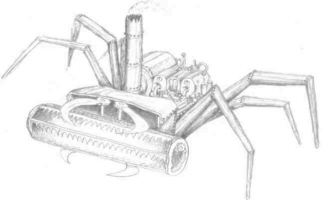
During
the mid-eighteen hundreds, the Weardale savant Ernest Glitch performed
scientific and technological investigations, little known to the present
student of the history of science.
An eccentric and volatile
person, his pursuit of knowledge was accompanied by the sort of hedonism
only the very rich can enjoy. The results of experiments he and his
assistant Hodges undertook were never published. As he kept no log-book,
the main record of the discoveries they made are the letters he wrote
to Michael Faraday.
In this book, those letters are presented,
together with contemporary reports, a journal Glitch made of his
expedition to Africa, and several narratives of his life. Also,
reference is made to both his ancestors and, in detail, his descendants.
Free samples from the book are available for your delectation.
Read these on-line, by selecting the available chapters from the contents below.
Some of the topics in the book are extremely dangerous.
Please read warnings & disclaimer at the bottom of this page.
Contains
very strong language. The letters and accounts of the work of Ernest
Glitch are of an appalling nature, containing references to animal and
human experimentation, extreme violence, Victorian drug abuse, and
complete disregard for the dignity of native peoples.
381 pages. 132 thousand words.
-----
Very cool.
The example chapters are very entertaining.
Keep your sightglass full, your firebox trimmed and your water iced.
KJ
Nikola Tesla: Dreams And Nightmares
Lots of good info in the video, nicely conspiratorial too :-)
Enjoy
KJ
Monday, 20 August 2012 10:54
This article, originally titled 'Free Energy For Everyone: The Dream And Unbridled Genius Of Nikola Tesla' was first published at LewRockwell.com
Nikola Tesla (1856-1943) has been called founder of modern electrical technology. Among his creations are the channeling of alternating current, fluorescent and neon lighting, wireless telegraphy and giant turbines that harnessed the power of Niagara Falls. A man ahead of his time, he is credited as the inspiration for radio, radar, robots and even TV and the internet. He held over 700 patents. He believed that cheap, abundant energy could be made available to everyone.
This video documents his amazing inventions as well as his persecution at the hands of the corporate state (46:26)
Various Regulations for the Royal Navy Medical Service 1875
6th July 1875.
The Lords Commissioners of the Admiralty are pleased to direct that the following Regulations, relative to the Examination of Candidates for the Appointment of Surgeon in the Royal Navy, shall in future be adopted:
Every Candidate desirous of presenting himself for admission to the Naval Medical Service must be not under twenty-one nor over twenty-eight years of age. He must produce a certificate from the District Registrar, in which the date of birth is stated ; or, if this cannot be obtained, an affidavit from one of the parents or other near relative, who can attest the date of birth, will be accepted. He must also produce a certificate of moral character, signed by a Clergyman or a Magistrate to whom he has been for some years personally known or by the President or Senior Professor of the College at which he was educated.
He must be free from organic disease, and will be required to make a declaration that he labours under no mental or constitutional disease or weakness, nor any other imperfection or disability that can interfere with the most efficient discharge of the duties of a Medical Officer in any climate.
His physical fitness will be determined by a Board of Medical Officers, who are to certify that his vision comes up to the required standard, which will be ascertained by the use of Snellen's Test Types.
The Boys Own Annual 1893
I acquired this gem at "Antiquing the Arc".
This
annual collection of the weekly paper, which was printed every Saturday
and sold for the princely sum of one cent, includes all the papers from
October 1892 to September 1893. This time period covered the year from
the perspective of English Public Schools.
This volume is in
superb condition for being nearly 120 years old! It was given to a
Percy Withers of Vancouver B.C. in January 1913 according to the
flyleaf.
In these papers, in very small print, are tales of
adventure from distant reaches of the Empire, distant times, and exotic
locales. All Illustrated with wonderful engravings and several special
colour plates. There are also articles on do it yourself projects (many
that would make any modern parent or teacher's hair stand on end!) as
well as sets of rules for games, etiquette, and the myriad other details
good and bad of growing up in the Public School system of the late 19th
century.
There is even the description of a very early version of a fuel cell, a gas battery, from 1893!
I
have several later collections of the Boys Own Papers from the early
20th century but this is the oldest and in the best condition of all. A
real treasure indeed.
More on the BOP as it was known:
----
http://www.flickr.com...![]()
The
Boy’s Own Paper (BOP) was a weekly children’s comic published by the
Lutterworth Press (during the time this badge was in use). BOP
readership was very much aimed at boys and there was also a sister
publication titled the Girl’s Own Paper. The first issue of BOP came out
on January 18th 1879 and remained in publication until 1967. BOP was
issued weekly from its inception until 1913 and monthly thereafter,
except during the latter years of WW2 due to paper rationing
Warrior to Dreadnought
This fine volume covers the development of the armoured warship between 1860 and 1905. Which is of course from the launch of HMS Warrior to HMS Dreadnought.
This
book has a wonderful collection of pictures, plans, tables and analysis
for every major warship development during this turbulent time in the
history of war at sea.
Written by David K Brown, retired Deputy
Chief Naval Architect of the Royal Corps of Naval Constructors*, in 1997
and published by Chatham Publishing in England.
From the cover:
----
The
author, D K Brown, a warship designer himself, shows how the
nineteenth-century designers responded to developments in engine
technology, armour protection and armament in their attempts to produce
the best possible fighting ships. He details the development of more
efficient engines which finally brought an end to the age of the sailing
warship, and the competition between armour and armament, with every
increase in hitting power of guns stimulating the development of tougher
and more sophisticated forms of protection. Importantly he challenges
the traditional perception of the Victorian Royal Navy as being
reactionary and obstructive to technological change, showing that it was
in fact at the forefront of such change, for example in the development
and employment of torpedoes and of countermeasures to them.








